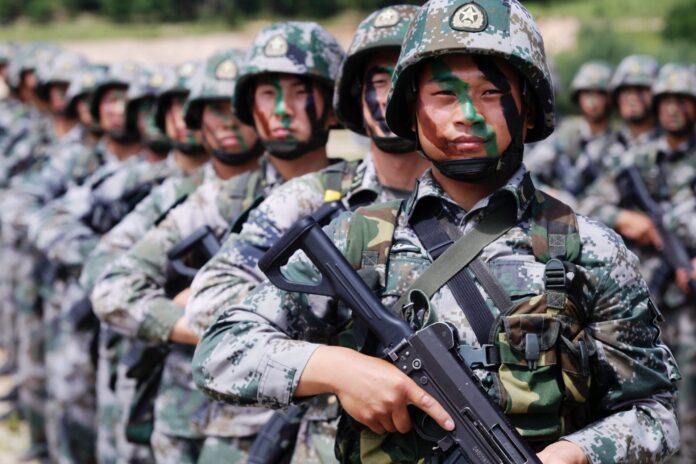
Well, that escalated quickly … and rather predictably.
As most of the world is now well aware, Trump has threatened China with additional 50% tariffs in addition to the 34% tariffs imposed on “Liberation Day” … in response to China hitting back against Trump with its own 34% tariffs.
Naturally, this entire mess could have been avoided.
After all, when China promptly retaliated, Trump proclaimed that he would be slapping additional penalties on the Asian manufacturing giant unless it rescinded its retaliatory tariffs.
In some ways, perhaps Trump thought that China might listen … after all, Japan was reportedly one of the first nations to seriously – and respectfully – engage with Trump.
Japan, in other words, made it rather clear that retaliation was not on the menu, but good-faith negotiation was.
Naturally, China decided to take the opposite approach of Japan, which has long been considered an even bigger enemy than the United States, especially from a historical standpoint.
China’s commerce ministry was swift to condemn Trump, effectively pounding its chest in front of the entire planet.
“The US threat to escalate tariffs against China is a mistake on top of a mistake, which once again exposes the US’s blackmailing nature,” the Chinese commerce ministry raged.
Well, if that isn’t the pot calling the kettle black.
After all, China is hardly known for its avoidance of blackmail, bullying, and other nefarious tactics to get what it wants.
Including tactics that involve creating lab-grown viruses that cripple the planet for years.
Naturally, such self-awareness was not evident in the Chinese commerce ministry’s continued rant, issuing a rather blatant retaliatory threat.
“If the US escalates its tariff measures, China will resolutely take countermeasures to safeguard its own rights and interests,” the commerce ministry continued to rage.
And those countermeasures may not only include rather predictable retaliatory tariffs, but also efforts to undermine American influence entirely.
As noted by The Guardian, “it was the biggest two-day loss of wealth ever recorded by Bloomberg’s billionaires index.”
The Guardian also notes that “stocks in Hong Kong diving 13.2% for their worst day since 1997, during the Asian financial crisis.”
Needless to say, quite a few billionaires have become angry. So angry they may well cut off their nose to spite their face, chiefly by turning to China.
Indeed,
Chengtong Holdings Group certainly seems quite confident, that’s for sure.
“We are firmly optimistic toward the growth prospects of China’s capital markets,” the group proclaimed, without elaborating.
Shiv Chanani, who serves as a fund manager of equity at Baroda BNP Paribas Mutual Fund, also hinted at a “new normal” lurking in the future.
“The current investor sentiment is characterised by uncertainty and fear, and it will persist till the time a new normal for global trade is established,” Chanani declared.
And that “new normal” may well include China attempting to fold traditional American allies under its sprawling economic umbrella.
Spanish Prime Minister Pedro Sanchez, for instance, is apparently incensed at Trump, and he has apparently decided that cutting a deal with China is more logical.
“This tariff attack by the U.S. administration makes no distinction between friends and enemies, it doesn’t discriminate based on ideology or trade balance; it’s against everyone and everything,” Sanchez remarked angrily, before boarding a plane and jetting off to Vietnam and China to engage in trade talks.
Tianchen Xu, senior economist at the Economist Intelligence Unit, also tried to make it appear as though China could care less about Trump’s tariffs, even if they go up by “500%.”
“Since China already faces more than 60% in tariff rate, it doesn’t really matter if it goes up by 50% or 500% … China is on the defensive side, but basically the two sides are testing each other’s limit,” Xu remarked smoothly.
And what a defense it has trotted out … including the notorious currency manipulation that has led to a messin the international trade system in the first place.
As detailed by CNBC, China has thus far set the midpoint rate for onshore yuan at 7.2038 per dollar, which is the weakest level since September 2023.
Robin Brooks, who serves as senior fellow at Brookings Institution, noted that this move made it rather clear that China, unlike Japan, was prepared to dig in its heels, using its own “blackmail” in an effort to intimidate Trump.
“This is Beijing politely saying this is getting a little too much, we are putting you on notice, we can devalue if we want and bigger things may come if you keep this up … This is a clear shot across the bow of Washington,” Brooks remarked.
Seems Brooks has a funny way of defining “polite.”
Especially when accounting for other commentary from China’s commerce ministry.
Hissing that there are “no winners in a trade war,” the agency issued another troubling warning to Trump.
“China will never accept this. If the US insists on going its own way, China will fight it to the end,” the commerce ministry ominously intoned.
“Fight it to the end.” To which end, exactly?
Though the Chinese commerce ministry has yet to elaborate further, it is not unreasonable to suspect that they may have more than economic retaliation in mind.
Author: Ofelia Thornton



